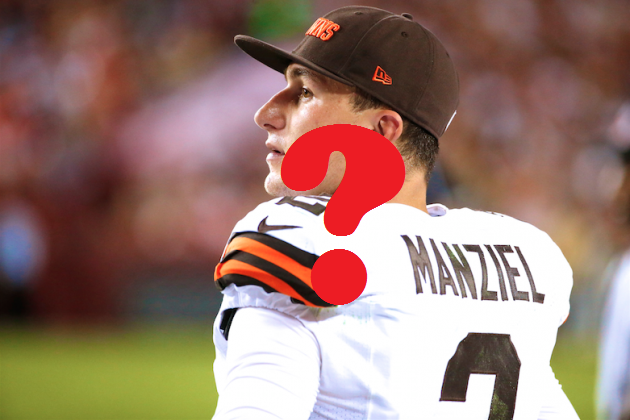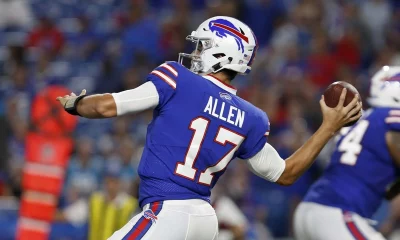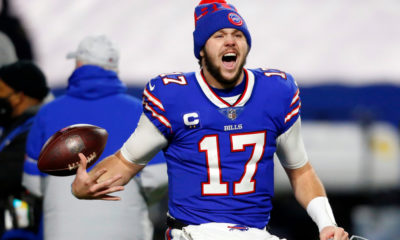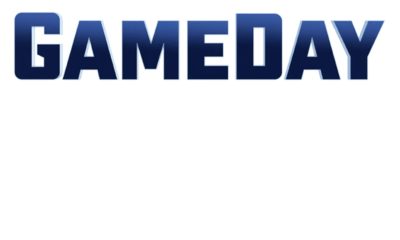
We’re confused, Johnny. We’re guessing you are too.
It’s 2012.
Texas A&M quarterback Jonathan Paul “Johnny” Manziel appears out of virtually nowhere to compile a 10-2 record, 3,419 passing yards, 1,181 rushing yards, 43 combined scores, and an upset of longtime SEC premier power Alabama. Despite the eye-popping numbers, Manziel appears humble and in control, displaying a shyness and unwillingness to grab the spotlight, often deferring to his teammates rather than bask in the accolades being showered upon him.
Manziel is a child of privilege; the heir of wealthy Texas oil baron lineage, and his parents go to great lengths to shelter him from the potential pratfalls and failings that often follow families of his type, ensuring that any notoriety he might achieve would be his own.
Manziel is listed at 6’0″, 200 pounds; diminutive by pro standards, but not out of line for most college programs, especially those that run primarily option systems. He runs a 4.7 40-yard dash time; again, not overly impressive, but considered good enough for NCAA purposes. The one thing he seems to display more than his contemporaries is an uncanny feel for when to break contain and use his mobility and elusiveness to gain yards and move the chains. He uses his receivers well enough to keep most defenses honest, although his favorite target, wideout Mike Evans, is 6’5″, 230 pounds – an obvious advantage against most NCAA defensive backs, and a classic pro prospect – and can bail Manziel out of many of his potential mistakes.
Manziel’s coach, Kevin Sumlin, says nothing but good things about him; praising his maturity, his awareness, his academic prowess, and of course, his overall football acumen. Indeed, the sporting world at large seems to be impressed with Manziel, professing him to be, potentially, one of the greatest quarterbacks in NCAA history, and speculating about his chances for success at the professional level.
Manziel wins the 2012 Heisman trophy by a substantial margin, beating out popular choice Manti Te’o, star linebacker from Notre Dame who, alas, is more remembered for his “catfish” scandal than his outstanding NCAA career. This and his seeming dedication and natural ability lead to his being dubbed “Johnny Football” by most fans, a monniker that sticks with him naturally and accentuates his apparent love of the game, and eventually leads to his parents setting up a corporation with the same title.
Manziel is a freshman. A redshirt freshman, yes, but still a child by most standards. He has one more year of college playing eligibility before he’s legally able to turn pro. For most of his 2012 season, Manziel is 19 years old.
* * * * * *
It’s early 2013.
Manziel is awash in attention from A&M faithful and fans, not to mention thousands more supporters from around the country. He’s in a lot of demand. Having turned 20 the previous December, Manziel’s youth isn’t in doubt, but neither is his apparent ease with the media or likeliness to tell the press exactly what they want to hear about his competitiveness, drive to repeat as a Heisman contender, and desire for A&M to contend for a national title. His schedule is full of interview requests and memorabilia signings.
According to an ESPN “Outside the Lines” report, in January of 2013, Manziel accepted a “five-figure flat fee” in exchange for signed merchandise while visiting Miami for the NCAA national championship game; a direct violation of NCAA rules regarding self-promotion and private income derived from outside sources. There were several more allegations to follow of a similar nature, calling into question the duration of Manziel’s supposed infractions, and implicating A&M to a degree by association. Legal counsel is retained by Manziel, A&M, and the NCAA, all of whom conduct their own investigations into the matter, with contradictory results. Manziel’s ultimate punishment? Suspension for the first half of the first game of the 2013 season; tantamount to an admission that there simply wasn’t enough evidence to determine if money had actually changed hands – particularly Manziel’s – after the signings had occurred. This is seen by many as a slap on the wrist of one of the NCAA’s “royalty” players, who seemingly receive special dispensation to misbehave because of their box office and commercial drawing power.
In April, rumors of Manziel’s excessive drinking begin to surface, including statements from him and his family highlighting his drinking at home, pointing to a loophole in Texas alcohol statutes that allows underage family members to imbibe while under the supervision of their parents. Manziel denies that there is a problem and claims that such instances were moderate in nature.
July isn’t a good month for Manziel.
- He resolves one pending court case stemming from a bar fight in mid-2012 by pleading guilty to a misdemeanor charge, leaving him to pay a $2,000 fine and court costs. An additional charge for possessing a fake driver’s license is dismissed in light of his plea.
- Two days later, Manziel is supposedly ousted from the Manning Family Passing Camp, which recruits and trains prospective pro quarterbacks on the finer points of the NFL experience, and seeks to instill the level of responsibility needed to thrive at the next level. Allegations of drinking are again prevalent, and again, Manziel denies any participation, but begins to bristle under any suggestion that he refrain from partying because it might compromise his nature.
- Ten days later, Manziel appears at an arch-rival University of Texas fraternity party. He and his friends are understandably asked, in no uncertain terms, to leave the premises. Once the story breaks, speculation about Manziel’s judgement in appearing at the party at all are called into question.
In late August, Manziel begins his 2013 football campaign after serving his half-game suspension. He proceeds to pass for 37 touchdowns and run for nine more, compiling an 9-4 record, including a win at the Chick-fil-A Bowl December 31. He finishes fifth in the Heisman voting but is widely touted as a first-round pro prospect.
* * * * * *
It’s 2014.
Manziel declares for the NFL draft on January 8. His prospects are high, given his outstanding 2013 numbers, and most pundits agree that he could be a consensus top-five pick.
In February, Manziel is the subject of an extensive profile by the Houston Chronicle, as the Texans are considering drafting Manziel first overall in the upcoming draft. Manziel comes off positively, emphasizing his desire to shed his partying persona and embrace the life of an NFL star. Of note is his claim that he has learned from his negative experiences. “I don’t want to hear, ‘Oh, anybody in his situation would have been doing the same thing.’ I’m 100 percent responsible for my actions.”
He chooses to bypass the annual NFL Combine in favor of throwing at Texas A&M’s pro day in March, where, despite a “circus-like” atmosphere, he performs extremely well, completing the vast majority of his passes and showcasing his mobility. His arm strength, considered a potential drawback, is adequate, and most agree that his outing did nothing to affect his potential draft stock. Opinions still vary greatly about Manziel, who is often viewed as alternately arrogant, angry, endearing, charming, athletic, lucky, and competitive by most pundits, who have Manziel, due mostly to his off-the-field transgressions and apparent attitude problems, being drafted anywhere from first overall to not being drafted at all.
In early May, Manziel lives up to his draft projections, more or less, by being drafted by the Cleveland Browns at #22 overall; perhaps lower than originally thought, but within the first round nonetheless. The quarterback-needy Browns trade up to get him after recognizing that he would possibly land elsewhere had they not done so.
Between draft night and the commencement of training camp, Manziel appears at the Browns’ scheduled minicamps and team activities. He is often late and seemingly unprepared, as the coaches cite his “profound” lack of knowledge of the playbook and suggest that he needs some remedial learning before he can be counted on to play at the professional level. Manziel counters by claiming that he is learning at his own pace, and states often that he expects to be the Browns’ starting quarterback by opening day.
During the same span, Manziel is seen partying, in no particular order, in Las Vegas (repeatedly), New York, Los Angeles, Houston, and Austin. He is photographed with Justin Bieber and Floyd Mayweather. His social-media captured antics include speaking into his “moneyphone”, and rolling up a $20 bill in classic cocaine-use fashion. The Browns voice their concerns, for obvious reasons.
During a preseason game against the Washington team, Manziel responds to bench heckling by offering his middle finger to the opposition, and is fined $12,000 for doing so. His preseason outings in general are so-so, and don’t inspire the Browns to consider him as a viable starting option, and they subsequently award the starting job to incumbent quarterback Brian Hoyer. Manziel responds by again saying the right things, that he will rededicate himself and that he hopes to become “the guy” for the Browns at some point in the near future.
Manziel scarcely appears on the field during the regular season until he is inserted in a game November 30 against the Bills. He sparks a late scoring drive in the 26-10 loss, rushing for the Browns’ only touchdown of the day. Two weeks later, in the wake of another loss, he is anointed the starting quarterback for the remainder of the season. Manziel starts and finishes a horrid outing against the Bengals in which he appeared incapable of reading the field, showed little arm strength, and once attempted to hand the ball off in the wrong direction. Most observers, including his own teammates, note his lack of execution and general confusion both in the huddle and at the line of scrimmage. His stats: 10 for 18, 80 yards, two interceptions. The final score is Bengals 30, Browns 0.
After vowing during the week to improve, Manziel starts the next game against the Panthers, but is removed due to a hamstring injury late in the first half after showing marginal improvement. Speculation runs abound that Manziel played up the severity of the injury to escape the ignominy of another failed outing. The next day, Manziel is placed on injured reserve, ending his rookie campaign. Undrafted fellow rookie quarterback Connor Shaw starts the next game in Baltimore, and plays credibly. Manziel states that he will dedicate the offseason to improving himself in every way to reestablish the public’s faith in him.
* * * * * *
And thus is the conundrum that is Johnny Manziel. After rereading most of the above narrative, I’m inclined to label Manziel a bust and a professional liar, given his penchant for soothing over his mistakes with articulate answers and seemingly focused critique of himself and his terrible play.
This in no way discredits his accomplishments as a college quarterback; had he stayed at A&M and played his remaining two years, he might have broken every conceivable record the NCAA holds, and would have, in my opinion, been far more capable and mature upon entry to the NFL, and been in a far better position to play effectively at the next level. Of course, this would have meant swallowing his longstanding urge to be paid attention to, which is often a convention of youth.
I have to speculate that Manziel may not be a bust. He still has time to figure things out, although the NFL isn’t the most patient landscape for first-round quarterbacks these days. Go back and review his A&M tapes, and you’ll understand why he was highly touted and promoted. His off-field arrogance translated well to the NCAA, where bravado coupled with performance creates excitement and optimism, but nowhere more so than in the mind of a 19-year old wunderkind quarterback whose ego is drastically inflated by the thousands of fans screaming his name every Saturday during the fall.
Bust or not, Manziel’s biggest pitfall is his own immaturity, which is why a few more years of NCAA experience would have benefited him greatly. Had he remained, he would have just finished his junior season at A&M and would be preparing to begin the spring academic semester (such as they are for athletes), which keeps leading me back to one indisputable fact:
He’s a kid.
And as such, I’m inclined to think that he needs and deserves more time to figure it out than most.
Is he an alcoholic? I don’t know. I don’t have any exposure to Manziel beyond what he shows the media and what’s captured on observers’ cell phone cameras. I know that around my 21st birthday, I was inclined to go out howling with my buds often, and it wasn’t limited to weekends or special events. But I also knew that my actions weren’t going to show up on TMZ the next morning, and that my actions would have consequences, whether good or bad; something Manziel appears immune to thus far.
Take a look at the projected first-round quarterbacks this year, and you’ll never see a bigger discrepancy in reputation.
- Oregon senior Marcus Mariota has holes in his game, but is a model citizen and an asset to his community. He’s a lock for the first round because of his upstanding persona alone.
- Florida State’s Jameis Winston is viewed as the riskier prospect by far, due to his youth and demonstrated lack of judgement and discretion, although his on-field upside will be considered worth it to a desperate team willing to gamble on the possibility that he may yet grow up and let his demeanor match his considerable athletic tools.
Does the Winston profile sound familiar? That’s exactly the rap on Manziel at this time last year, long before the draft or even the combine or pro day.
Give Manziel more time, I say. Give him a couple of more opportunities to figure it out, because, as a precocious athlete but socially underdeveloped kid, our society should cut him a bit more slack. Perhaps he’s already learned something from his experiences this past season. I haven’t heard his name associated with anything negative for a few weeks beyond the football field. Maybe he’s getting it; maybe not.
Time will still be Manziel’s judge, although most fans and haters have already assumed that role. The fact that public opinion is now largely against him may well play a part in any redemption that he experiences, because he still has that kids’ urge to be noticed and adored.
The world’s still watching, Johnny, often at your urging.
It’s still up to you.



















Facebook
Twitter
RSS